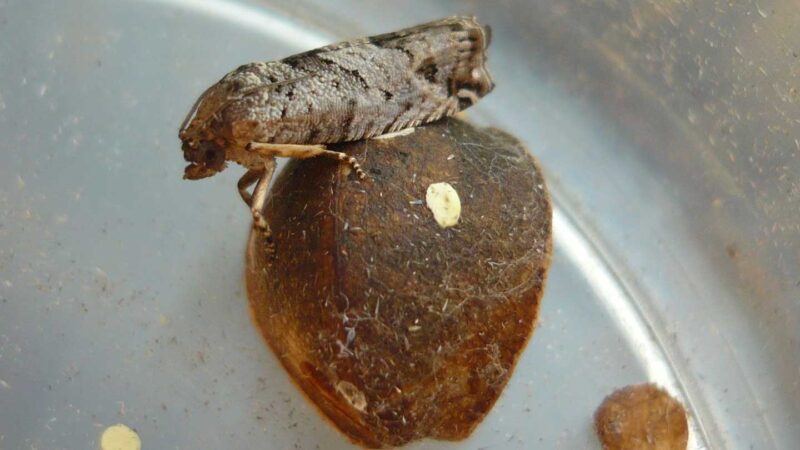Jumping beans’ random strategy always leads to shade — eventually

Given enough time, jumping beans will always find their way out of the sun.
Jumping beans, which are really seed pods with twitchy moth larvae inside, hop around in a way that — if they live long enough — is guaranteed to eventually land them in the shade, researchers report in a study to appear in January in Physical Review E.
When a jumping bean finds itself in a sunny spot where it might overheat and die, the moth larva will twitch to make the bean jump a short distance. “If I’m a bean and I exist outside of the shade,” says physicist Pasha Tabatabai of Seattle University, “all I want to know is what’s the eventual probability of finding shade?”
Science News headlines, in your inbox
Headlines and summaries of the latest Science News articles, delivered to your email inbox every Thursday.
Thank you for signing up!
There was a problem signing you up.
To determine how the creatures approach the problem, Tabatabai and Devon McKee — now a computer scientist at the University of California, Santa Cruz — tracked the jumps of beans placed on a warm surface. They discovered that each jump was in a random direction, with no correlation to the previous jumps. Mathematicians call this way of moving around a random walk (SN: 3/15/06).
While a random walk isn’t a quick way to travel, Tabatabai says, a creature using it to move on a surface, like the ground near a tree, will theoretically visit every place on the surface eventually. That means a random walking bean will always end up in the shade if it keeps it up long enough.
Picking a direction and repeatedly going that way would cover distance faster. “You’re certainly going to find shade fastest,” Tabatabai says — assuming you’re headed the right way. “But it’s also very likely that you’ll pick the wrong direction and never find shade.”
Random walks are slow, and many jumping beans don’t survive to find shade in real life. But, Tabatabai says, the strategy minimizes the odds that they will never escape the sun.
For all the latest Science News Click Here
For the latest news and updates, follow us on Google News.

